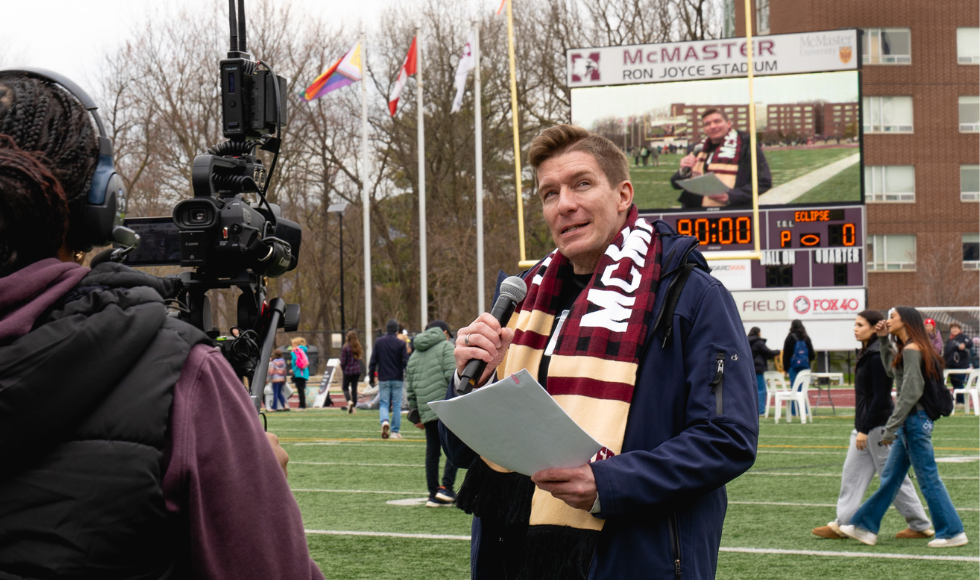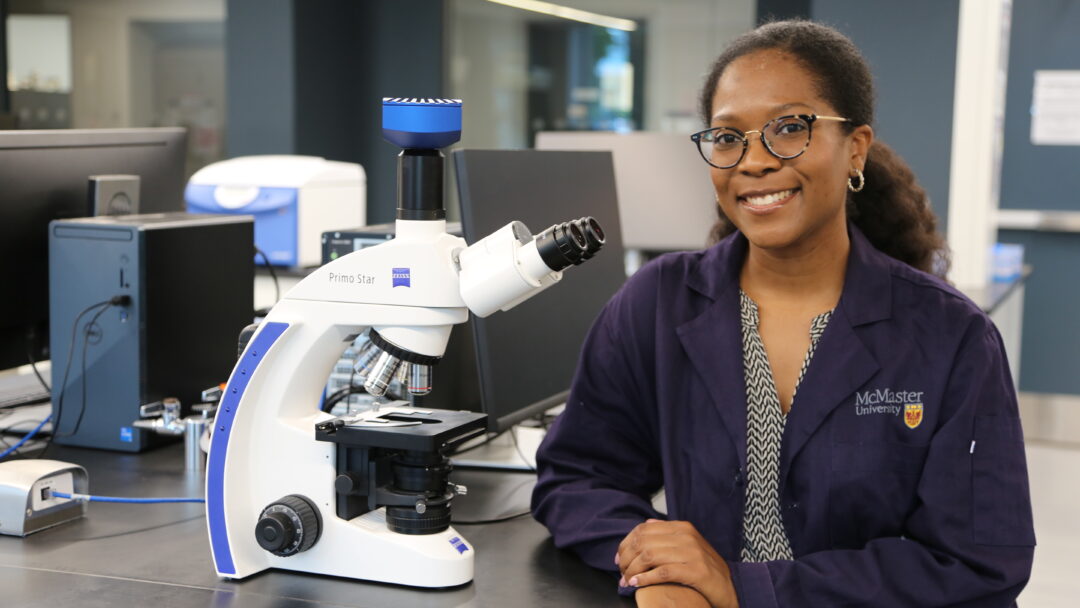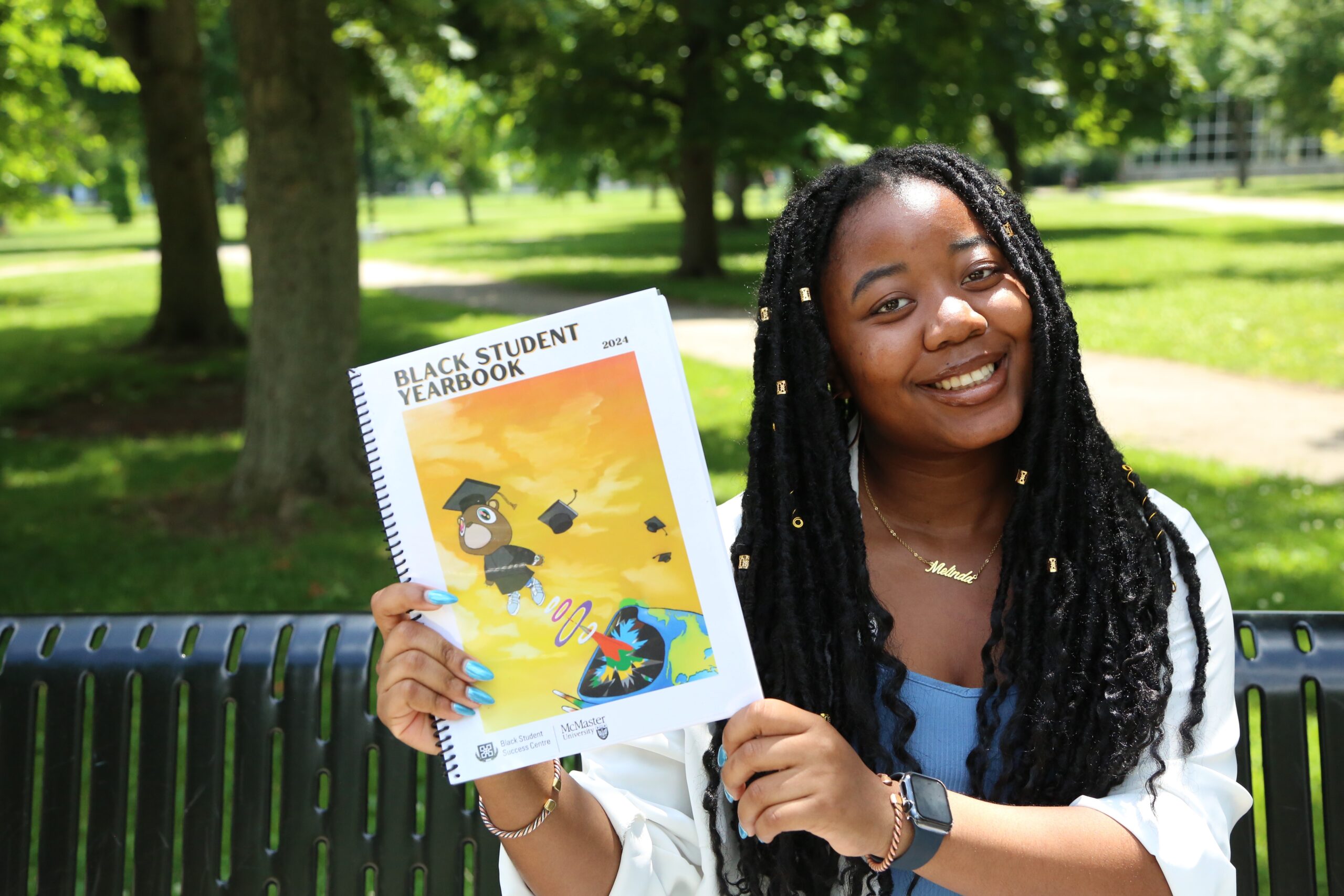Robert Cockcroft reflects on 7 years of planning eclipse viewing

SEVEN YEARS OF PLANNING FOR 90-SECOND ECLIPSE? TOTALLY WORTH IT FOR ASTRONOMY PROFESSOR
story originally posted in the April 2024 edition of the Science Matters newsletter
Robert Cockcroft spent seven years getting ready to deliver the planetarium show of his life on April 8th.
The show, and the build-up to the total solar eclipse, exceeded all of his expectations. “Absolutely incredible,” says the celestial party planner and assistant professor in the Department of Physics & Astronomy.
The wheels started turning while Robert and his husband were in Tennessee with friends to watch the 2017 total solar eclipse. When he got back, Robert began talking about the 2024 eclipse with students in all of his astronomy classes. And in May 2021 – “long before it was on most people’s radar” – he called the first meeting to plan how McMaster could celebrate the eclipse.
Everything Robert dreamed about – giving away eclipse glasses, hosting an Indigenous astronomy panel, running special planetarium shows and staging an on-campus viewing party – came to pass. “Definitely the outreach highlight of my career,” says Robert.
Of all that happened, what is he most proud of? Robert says he’s most grateful for the connections that were forged and strengthened on campus and in the community in the lead-up to the eclipse. “We were able to celebrate this once-in-a-lifetime event with so many people. Those connections and celebrations wouldn’t have happened without the support of Provost Susan Tighe and Dean Maureen MacDonald and the incredible work by Michelle Ball and Nicole Dal Ferro.”
Robert remembers how quiet it was while watching the 2017 eclipse south of the border. The 2024 eclipse was anything but silent, with the Ron Joyce Stadium sold out and packed with students, alumni, faculty, staff and community members. “The soundtrack for this eclipse was the roar of thousands of people anticipating and then responding with pure joy at what we were witnessing together.”
Robert got to experience that moment with his husband and the same friends who made the trip seven years ago to Tennessee. His mom was also there. “My parents have always supported whatever I wanted to do in life. They flew over from the UK to Canada for my PhD graduation. My mum was with me the entire day on April 8th – meeting lots of people from 8 a.m. in a cold and empty stadium right through to very end of the day. My dad recently passed away so it meant the world that my mum and my husband were together with me for the eclipse. We kept my dad in our thoughts throughout the entire day.”
So what’s next for Robert? He’s already looking ahead to eclipses happening around the world. Hamilton won’t see another total solar eclipse until 2144 “but if you’re willing to travel there are lots of options.” A friend recently pitched Robert on the idea of helping with astronomy-themed cruises.
Closer to home, Robert’s excited to expand the reach of both the department’s permanent and portable planetariums and continuing to work with Indigenous scholars to collaboratively produce Indigenous-themed astronomy shows.
“Having my inbox return to normal levels is great but I’ll definitely miss the buzz and excitement of working with so many people and connecting with lots of community members.”
UncategorizedRelated News
News Listing
Generative Artificial Intelligence in Life Science and History Courses: Experiences, Opinions, and Policy Implementations
Uncategorized
October 24, 2024

Not the usual lesson in chemistry – assistant prof turns labs into an escape room for next gen scientists
Uncategorized
August 6, 2024

August 2, 2024
